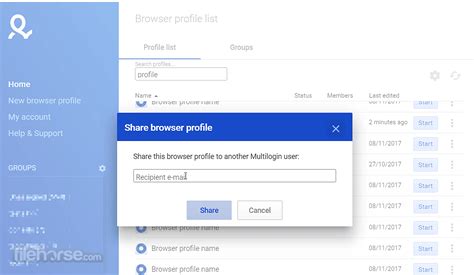Copy handler 1 42
Author: o | 2025-04-24

Copy Handler 1.46 (Bản chuẩn cuối) - Download; Copy Handler 1.44 / 1.45 beta 1 - Download; Copy Handler 1.41 - Download; Copy Handler 1.40 - Download; Copy Handler 1.32 - Download; Copy Handler 1.32 - Download

copy handler -copy handler v1.46 -
Session on the author’s laptop:q)\w 0566 18470q)lottasyms:1000000?`5q)\w4312768 67108864 67108864 0 0 1717986918413.1.25 Week Offset \W¶The week offset command \W [offset] (note upper case) displays or sets the week offset. An offset of 0 corresponds to Saturday. The default is 2, which is Monday. This is useful in controlling weekends when aggregating weekly data. In a fresh q session,q)\W2iq)group `week$2015.01.01+til 102014.12.29| 0 1 2 32015.01.05| 4 5 6 7 8 9q)\W 0q)group `week$2015.01.01+til 102014.12.27| 0 12015.01.03| 2 3 4 5 6 7 82015.01.10| ,9q)\W 1q)group `week$2015.01.01+til 10_13.1.26 Expunge Handler \x¶The expunge handler command \x handler un-assigns a user specified event handler for one of the .z.* event handlers and restores the default system behavior. For example, here is how you can customize the console response and then restore the original behavior.q).z.pi:{"==>",.Q.s value x}q)42==>42q)43==>43q)\x .z.pi==>q)4343q)4444There is no default handler for .z.ph so expunge does not work there.13.1.27 Date Format \z¶The date parsing format command \z [0|1] displays or specifies the format for date parsing. A value of 0 corresponds to month-then-day – as in mm/dd/yyyy – and a value of 1 corresponds to day-then month – as in dd/mm/yyyy. The default value is 0i. In a fresh q session,q)\z0iq)"D"$"12/31/2015"2015.12.31q)"D"$"31/12/2015"0Ndq)\z 1q)"D"$"12/31/2015"0Ndq)"D"$"31/12/2015"2015.12.31See §13.2.21 for the related command line parameter -z.13.1.28 Lock Script \_¶The \_ command with no parameter checks to see if client write access is blocked. See the description of –b in §13.2.1.The _ script.q command transforms the specified script file into an equivalent one in script.q\_ that can be loaded and executed with \l but whose contents are scrambled for human eyes. The resulting file cannot be viewed, serialized or modified.For example, suppose we have saved the following script as /scripts/sensitive.q.secret:42reveal:{[] 42}Then we can lock it as follows.q)\_ sensitive.q`sensitive.q_q)\l sensitive.q_q)secretq)reveal[]42q)reveal / ignoredq)-8!reveal / ignoredq)read1`:sensitive.q_ / scrambled_13.1.29 Redirect \1 and \2¶These commands \1. Copy Handler 1.46 (Bản chuẩn cuối) - Download; Copy Handler 1.44 / 1.45 beta 1 - Download; Copy Handler 1.41 - Download; Copy Handler 1.40 - Download; Copy Handler 1.32 - Download; Copy Handler 1.32 - Download Copy Handler 1.46 (Bản chuẩn cuối) - Download; Copy Handler 1.44 / 1.45 beta 1 - Download; Copy Handler 1.41 - Download; Copy Handler 1.40 - Download; Copy Handler 1.32 - Download; Copy Handler 1.32 - Download Copy Handler 1.46 (Bản chuẩn cuối) - Download; Copy Handler 1.44 / 1.45 beta 1 - Download; Copy Handler 1.41 - Download; Copy Handler 1.40 - 1. Register Copy Handler: Add Teracopy to Windows Registry as default copy handler, replace built in Windows copy handler Unregister Copy Handler: reverse above Free Download Copy Handler 1.44 / 1.45 Beta 1 - Copy multiple files from one removable storage device to another with the help of this Copy Handler download . Copy Handler download. Copy Handler free download. Copy Handler Copy Handler program is a small tool designed for Copy Handler free download. Copy Handler Copy Handler program is a small tool designed for Copy Handler 1.45 Beta 1 免安裝中文版 Greenwich Mean Time (GMT) and is equivalent to `time$.z.p.13.3.32 Local Date .z.T¶The system variable .z.T retrieves the local date component according to the time zone offset from GMT and is equivalent to `time$.z.P.13.3.33 On Timer .z.ts¶Assign a function to the system variable .z.ts to be evaluated on every timer tick – see §13.1.18 for the command \t to start/stop the timer. For example, the following assigns a handler to display local time to the console, turns on the timer to fire (approximately) every two seconds and turns it off after a few ticks.q).z.ts:{show .z.P}q)\t 2000q)2015.03.26D12:48:24.4871450002015.03.26D12:48:26.4882860002015.03.26D12:48:28.4882370002015.03.26D12:48:30.488372000q)2015.03.26D12:48:32.4882060002015.03.26D12:48:34.488370000\t 0q)To restore the default behavior, expunge the handler with \x .z.ts.13.3.34 User .z.u¶The system variable .z.u is a symbol that represents the user ID of the q session.Inside the processing of a remote message on a server, .z.u represents the user ID of the remote session.13.3.35 On Value Set .z.vs¶Assign a function to the system variable .z.vs to be evaluated after a global variable in the root context is set. The parameters for your handler are the symbolic name of the global being set and the subdomain of the assignment. For example, in a fresh q session,q)a:42q)m:(1 2; 3 4)q).z.vs:{0N!(x;y;value x)}q)a:43(`a;();43)q)m[0;0]:42(`m;0 0;(42 2;3 4))To restore the default behavior, expunge the handler with \x .z.vs.13.3.36 Who .z.w¶The system variable .z.w represents the handle of “who” is in communication during the current remote call. At the console prompt, the value is 0i, representing the interactive user. In the midst of processing a remote message, it is the (local) open handle associated with that remote client on this process.13.3.37 Handle Queues .z.W¶The system variable .z.W (note upper case) returns a list of dictionaries whose keys are open handles and whose values are lists of bytes in the corresponding output queue. See the KX site for more details.13.3.38 OnComments
Session on the author’s laptop:q)\w 0566 18470q)lottasyms:1000000?`5q)\w4312768 67108864 67108864 0 0 1717986918413.1.25 Week Offset \W¶The week offset command \W [offset] (note upper case) displays or sets the week offset. An offset of 0 corresponds to Saturday. The default is 2, which is Monday. This is useful in controlling weekends when aggregating weekly data. In a fresh q session,q)\W2iq)group `week$2015.01.01+til 102014.12.29| 0 1 2 32015.01.05| 4 5 6 7 8 9q)\W 0q)group `week$2015.01.01+til 102014.12.27| 0 12015.01.03| 2 3 4 5 6 7 82015.01.10| ,9q)\W 1q)group `week$2015.01.01+til 10_13.1.26 Expunge Handler \x¶The expunge handler command \x handler un-assigns a user specified event handler for one of the .z.* event handlers and restores the default system behavior. For example, here is how you can customize the console response and then restore the original behavior.q).z.pi:{"==>",.Q.s value x}q)42==>42q)43==>43q)\x .z.pi==>q)4343q)4444There is no default handler for .z.ph so expunge does not work there.13.1.27 Date Format \z¶The date parsing format command \z [0|1] displays or specifies the format for date parsing. A value of 0 corresponds to month-then-day – as in mm/dd/yyyy – and a value of 1 corresponds to day-then month – as in dd/mm/yyyy. The default value is 0i. In a fresh q session,q)\z0iq)"D"$"12/31/2015"2015.12.31q)"D"$"31/12/2015"0Ndq)\z 1q)"D"$"12/31/2015"0Ndq)"D"$"31/12/2015"2015.12.31See §13.2.21 for the related command line parameter -z.13.1.28 Lock Script \_¶The \_ command with no parameter checks to see if client write access is blocked. See the description of –b in §13.2.1.The _ script.q command transforms the specified script file into an equivalent one in script.q\_ that can be loaded and executed with \l but whose contents are scrambled for human eyes. The resulting file cannot be viewed, serialized or modified.For example, suppose we have saved the following script as /scripts/sensitive.q.secret:42reveal:{[] 42}Then we can lock it as follows.q)\_ sensitive.q`sensitive.q_q)\l sensitive.q_q)secretq)reveal[]42q)reveal / ignoredq)-8!reveal / ignoredq)read1`:sensitive.q_ / scrambled_13.1.29 Redirect \1 and \2¶These commands \1
2025-04-21Greenwich Mean Time (GMT) and is equivalent to `time$.z.p.13.3.32 Local Date .z.T¶The system variable .z.T retrieves the local date component according to the time zone offset from GMT and is equivalent to `time$.z.P.13.3.33 On Timer .z.ts¶Assign a function to the system variable .z.ts to be evaluated on every timer tick – see §13.1.18 for the command \t to start/stop the timer. For example, the following assigns a handler to display local time to the console, turns on the timer to fire (approximately) every two seconds and turns it off after a few ticks.q).z.ts:{show .z.P}q)\t 2000q)2015.03.26D12:48:24.4871450002015.03.26D12:48:26.4882860002015.03.26D12:48:28.4882370002015.03.26D12:48:30.488372000q)2015.03.26D12:48:32.4882060002015.03.26D12:48:34.488370000\t 0q)To restore the default behavior, expunge the handler with \x .z.ts.13.3.34 User .z.u¶The system variable .z.u is a symbol that represents the user ID of the q session.Inside the processing of a remote message on a server, .z.u represents the user ID of the remote session.13.3.35 On Value Set .z.vs¶Assign a function to the system variable .z.vs to be evaluated after a global variable in the root context is set. The parameters for your handler are the symbolic name of the global being set and the subdomain of the assignment. For example, in a fresh q session,q)a:42q)m:(1 2; 3 4)q).z.vs:{0N!(x;y;value x)}q)a:43(`a;();43)q)m[0;0]:42(`m;0 0;(42 2;3 4))To restore the default behavior, expunge the handler with \x .z.vs.13.3.36 Who .z.w¶The system variable .z.w represents the handle of “who” is in communication during the current remote call. At the console prompt, the value is 0i, representing the interactive user. In the midst of processing a remote message, it is the (local) open handle associated with that remote client on this process.13.3.37 Handle Queues .z.W¶The system variable .z.W (note upper case) returns a list of dictionaries whose keys are open handles and whose values are lists of bytes in the corresponding output queue. See the KX site for more details.13.3.38 On
2025-04-15WebSocket Close .z.wc¶Introduced in q3.3, the system variable .z.wc can be assigned a handler that is called when a WebSocket connection is closed. Prior to q3.3 this was handled in .z.pc.Your handler is executed immediately after a WebSocket connection has been closed. Since the connection has been closed by the time the handler is called, there are no valid remote values for .z.a, .z.u or .z.w. Consequently the local values are returned.This is useful to clean up things like a table of users keyed by handle, in which case you use the just-closed handle that is passed as a parameter to .z.wc.13.3.39 On WebSocket Open .z.wo¶Introduced in q3.3, the system variable .z.wo can be assigned a handler that is called when a WebSocket connection is opened. Prior to q3.3 this was handled in .z.po.Your handler is executed just after a WebSocket connection to a kdb+ session has been initialized – i.e., once it has been validated against a -u/-U file (if specified) and .z.pw checks. The argument is the just-opened handle.This handler is typically used to build a dictionary of handles associated with session information such as .z.a or .z.u.13.3.40 On WebSocket Message .z.ws¶Assign a function to the system variable .z.ws to be evaluated whenever a message arrives over a WebSocket. See §11.7 for examples.13.3.41 Command-Line Parameters .z.x¶The system variable .z.x is a list of strings representing the command-line parameters provided after the name of the file or directory on the command-line invocation of the q process. For example, if q is invoked from the OS console with,q convertargs.q 42 forty 2.0we find,q).z.f`convertargs.qq).z.x("42";"forty";"2.0")13.3.42 Raw Command Line .z.X¶The system variable .z.X was introduced in q3.3. It is a string representing the unprocessed command line that invoked the q process, beginning with the invocation of q. For example,$rlwrap m32/q trade.q -p 12345
2025-04-13